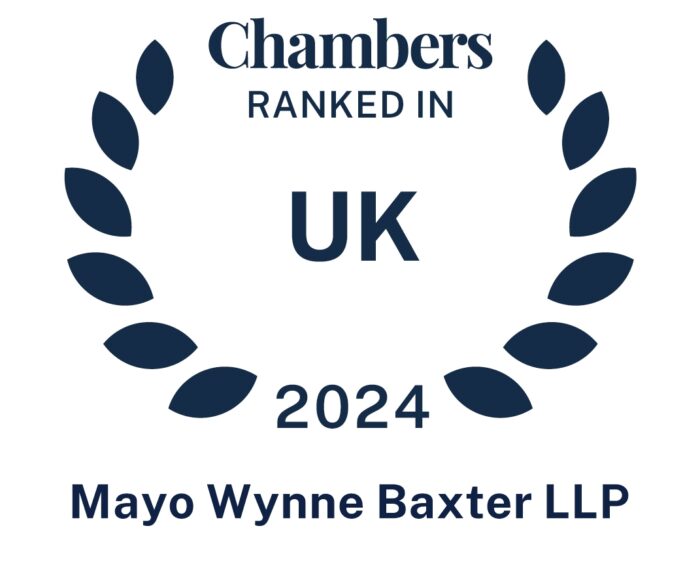
Family Law, Relationships and Marriage
Every situation is different and involves many sensitive, family legal issues that require a human, understanding and patient approach to help you to make sense of what is going on. Our family solicitors are experts in guiding you through these difficult times.
Jump to section...
Dedicated family legal services for you and your family
A family break-up is a stressful, painful and emotional time for everyone involved. If it happens to you, it can leave you feeling completely overwhelmed and alone.
Having a family law solicitor by your side can support you through the challenges that you are going through, and ensure you emerge confidently into your new life.
Our specialist family law solicitors look after clients across Sussex, with offices in Brighton, Chichester, Crawley, Eastbourne, East Grinstead, Lewes, Peacehaven, Seaford and Storrington, as well as London.
Our family and relationship solicitors
Our family legal services
Finding a solution for the best interests of you and your family is always at the heart of everything we do. At Mayo Wynne Baxter we go that extra mile to help and protect you.
Whether you need advice on separation, civil partnerships, cohabitation, children or financial issues, our family legal advice is bespoke to you and your individual circumstances.
Our family law and relationship services:
- Divorce law
- Finances and settlements including separation agreements
- Children’s law
- Cohabitation law
- Pre-nuptial and, post-nuptial and separation agreements
- Domestic violence, injunctions and harassment law
- International family law
- Civil Partnership and LGTBQ+ law
- Civil Partnership dissolution
- Guardianship law
- Surrogacy law
- Collaborative law
- Mediation law
An understanding and professional approach
We pride ourselves on understanding you and the specific circumstances of your situation comprehensively, applying our expertise and experience to act quickly in resolving your family issue or relationship disagreement.
We are members of Resolution, which means we have signed up to an agreed Code of Practice and are committed to helping you resolve any family issue in a non-confrontational way.
Mayo Wynne Baxter is accredited by The Law Society, signifying that some of our solicitors have undertaken additional training and are considered experts in certain fields. As a result, you can be confident that we have the knowledge and professionalism to make your family situation better.
In addition, we are ranked in the Legal 500, the world’s leading legal directory, and Chambers Guide.
Contact our family law solicitors today
If you would like to talk to us, we offer a number of options to suit your personal preference. Call us, email or contact us using our online form and we’ll get back to you.

Grant Parker
Partner & Head of Family
Call us today
Or request a call back from a member of our team
Our family law services
Children Law Solicitors
Civil Partnership Dissolution
Civil Partnerships
Cohabitation Law
Collaborative Law
Divorce Law
Domestic Violence, Injunctions and Harassment Law
Finances & Divorce Financial Settlements
Guardianship Law
International Family Law
Mediation law
Pre and Post-nuptial Agreements
Surrogacy Law
Meet our team
Why choose Mayo Wynne Baxter
We are a family law team that prioritises client care and providing expert, bespoke legal advice on all family law issues.
- Personalised and compassionate approach
- Specialist team of family law solicitors
- Strong focus on client satisfaction and accessibility
- We provide personalised advice and support throughout the whole legal process

Our Memberships and Awards
Family law FAQs
This very much depends on each individual case. An estimated timeframe would be between 6-8 months from when a solicitor is instructed to receive the Decree Absolute. However, there are many aspects of a divorce which you have little or no control over, and it very much depends upon your spouse’s cooperation and the court’s timetable. Further delays can be experienced when negotiations become protracted, regarding settling the finances. With the advent of the online portal, however, divorce applications are being processed far quicker and the timeframe has decreased to 3-4 months if the divorce is relatively straightforward.
If you are the Petitioner in divorce proceedings, you can apply for the Decree Absolute 6 weeks and 1 day after the Decree Nisi has been granted. If you are the Respondent, and the Petitioner has not applied for the Decree Nisi, you can apply for it yourself. However, you will have to wait an additional 3 months to do this (on top of the standard 43 days). We usually advise that you do not apply for Decree Absolute until the financial matters have been settled. Some potential reasons are as follows:
- You would lose the special status of “widow” or “widower” if one spouse were to die after Decree Absolute, but before the finances have been settled
- You may lose out on pension benefits if you are no longer married.
- It may also be important to preserve the Petitioner’s right to occupy the family home, which (under the Family Law Act 1996) would come to an end when Decree Absolute was granted.
- There could also be adverse tax consequences if the finances are not settled beforehand. Having said that, unless the above applies to you, there is no reason why the Decree Absolute should not be applied for prior to the conclusion of the financial aspect of the divorce.
In May 2024, the Ministry of Justice that 172 Court increased court fees by 10% , including a number of Family Court fees.
His Majesty’s Courts and Tribunals Service (HMCTS) expects to increase the fees (last increased in 2021) to generate an additional £34-£42 million in revenue to support the service. Most fees announced are set to recover the cost of service or to subsidise other court fees which are charged at a lower rate or not charged at all in the interest of protecting vulnerable users .
Amongst the family court fees set to increase are the following:
- Application for a financial order (other than consent order) will rise from £275 to £303
- Application for a child arrangements order will rise from £232 to £255
- Application for an order by consent will rise from £53 to £58
For those on lower incomes or in receipt of state benefits, the ‘Help with Fees’ service is still available to you, and you may be eligible for a full or partial reduction of fees.
At Mayo Wynne Baxter we recognise that the breakdown of a marriage can be an expensive and complex process, with costs ever increasing. Our service includes providing all our clients with expert advice as well as full transparency in respect of the potential fees involved in family breakdown. If you do need to make an application to court, this is something that we can discuss with you, alongside the other potential funding options available to you.
Both terms refer to how a property is owned. Joint tenants own the whole of the property jointly and equally. Tenants in common, on the other hand, own a specified share, usually defined by what each owner invests into the property. For example, financial contributions towards the deposit or mortgage would determine the shares. Additionally, tenants in common can control who inherits their share. If they predecease their co-owner, their share passes to whoever they left it to within their Will. In contrast, when one joint tenant dies, their share automatically passes to the other joint tenant.
You can find out by obtaining Official Copy Entries of your property from the Land Registry. If the property is held as tenants in common, under the Proprietorship Register on the Title Register, there will be the following restriction:
“No disposition by a sole proprietor of the registered estate (except a trust corporation) under which capital money arises is to be registered unless authorised by an order of the court”.
If the property is held as joint tenants, no such restriction will be included on the Title Register.
If you and your spouse/partner have separated or are divorcing, it is a good idea to sever the joint tenancy so that you can control the devolution of your half of the property. If you died before the divorce was finalised, your spouse would automatically receive your share of the property as the other joint tenant.
Also known as a Declaration of Trust, this Deed is a legally binding document used by tenants in common and is drawn up at the time of buying a property together. It records the financial contributions of both parties towards the property, such as amounts put forward for the deposit, and stipulates what should happen to the property should the tenants in common separate or the property be sold. It can also record contributions made by third parties, such as parents, and what happens to this contribution upon the sale/transfer of the property.
This very much depends on whether you are married or unmarried. If you are unmarried, and both names are on the property, the starting point will be that you own the house in equal shares. Unless you agreed otherwise in writing at the time of the purchase. For example, if one party contributed more than the other, they may have asked their conveyancing solicitor to record this in the title deeds/declaration of trust, to say the property should not be owned equally (i.e. one party owns 60% and the other 40%). If your name is not on the title of the property, and you are unmarried, there is no automatic entitlement to a share of the property. The burden will be on you to prove otherwise and without a written agreement this can be challenging. You could be entitled to a share if you have contributed to the deposit or made improvements which have increased the property value. There was a common intention by both parties to share ownership and the non-legal owner relied on this, to their detriment. This is a complex area, and you should seek legal advice if you are unsure of your position. If you are married, your financial position changes. The Courts will still look at how a property is owned (i.e. joint tenants/tenants in common/sole ownership) along with any contributions made to the purchase price/mortgage/maintenance etc. However, they are by no means the only factors considered. The Courts look at all the facts of a case and ultimately, they will act on their discretion as to how the equity is divided.
If you separate and are unmarried, the legal framework is somewhat different to married couples. The two main areas discussed below covers disputes over the property and claims made for maintenance for the children. Please see the above answer to question 5, in terms of your ownership of any property after you separate, specifically the paragraphs relating to unmarried couples. If you are in dispute over a property you own jointly, or a property that is in one of your names, but you believe you are entitled to a share, then you may be able to make a claim. The Trusts of Land and Appointment of Trustees Act 1996 (TOLATA) deals with this area of law.
Under this Act, you can seek the help of the Court to decide what share of the property you own and whether the property should be sold to release your share. If you have children, you may also be able to claim under Schedule 1 of the Children Act 1989. This deals with maintenance for children but this is only awarded in limited circumstances. However, it is worth finding out if you can seek financial provision for the children, from the other parent. Lastly, it is worth considering entering into a cohabitation agreement, to set out how you wish to sort out issues about property, money, and child arrangements if you decide to separate. Please contact one of our legal advisers if you would like further information.
Mediation is a type of alternative dispute resolution. Mediation is a cost-effective alternative to going to court and is something you can try, even if a court case has started. In April 2014 the law changed to say that before making an application to the Family Court, the Petitioner/Applicant must find out about mediation, by attending a Mediation Information and Assessment Meeting (MIAM), unless they qualify for an exemption (i.e there is evidence of domestic violence, or an application must be brought urgently). It involves an unbiased, neutral, third party who works with the parties to try and resolve issues and negotiate a settlement. Mediators cannot give you legal advice but can help you to reach an agreement. The parties retain control of the decision as to whether or not they settle and on what terms. Some of our solicitors are qualified mediators, so please get in touch if you require their assistance.
Collaborative Law is another form of dispute resolution for separating couples who seek to settle matters without court intervention. Collaborative Law operates as a series of meetings aimed at resolving the issues resulting from the breakdown of a relationship. The parties and their solicitors sign up to an agreement promising to try and reach an amicable agreement on all issues, in the hope of avoiding Court proceedings. If a settlement cannot be reached, the parties cannot continue to instruct their collaborative lawyers and must instruct new solicitors to represent them. This means that both parties have a vested interest in making the process work. Some of our solicitors are trained collaborative lawyers, so please get in touch if you would like some further information.
Our Latest News
Our specialist team are here to help you and guide you through the legal process. We pride ourselves on providing exceptional service from outstanding people.
If you would like to speak to a member of our team, please fill out the enquiry form. We will aim to reply to your query within 4 business hours.
Need to speak to someone sooner?
Call us: 0800 84 84 101
What to expect when you contact us
- Once you have completed the contact form or called us, our client service team will call you back, to ask a few questions including your preferred method of contact. This information is then passed directly to the Legal Adviser who will be working for you. Once you are happy to proceed we will gather all the relevant information and your file will be opened almost immediately so we can start work.
- A member of the Client Service Team will keep in contact with you on a regular basis throughout your transaction, to make sure you and them are satisfied with the progress of your matter. There is no additional charge to you for their involvement.
- We are here to assist you and ensure everything proceeds as smoothly as possible. You will have direct contact details for the client service team, who you can contact at any point during your matter.
Our aim is to make the process as easy and uncomplicated as possible for you.












